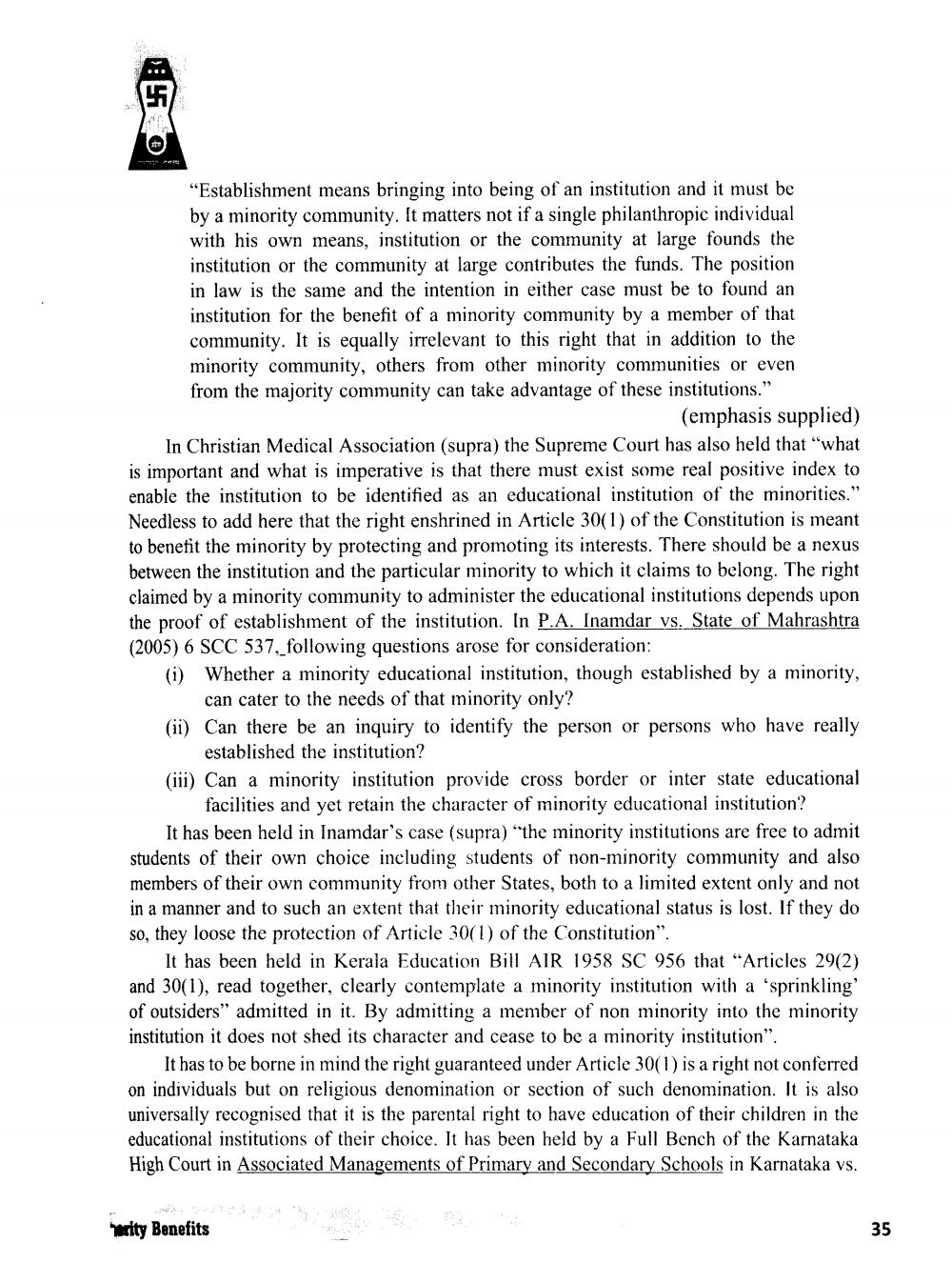________________
“Establishment means bringing into being of an institution and it must be by a minority community. It matters not if a single philanthropic individual with his own means, institution or the community at large founds the institution or the community at large contributes the funds. The position in law is the same and the intention in either case must be to found an institution for the benefit of a minority community by a member of that community. It is equally irrelevant to this right that in addition to the minority community, others from other minority communities or even from the majority community can take advantage of these institutions."
(emphasis supplied) In Christian Medical Association (supra) the Supreme Court has also held that "what is important and what is imperative is that there must exist some real positive index to enable the institution to be identified as an educational institution of the minorities." Needless to add here that the right enshrined in Article 30(1) of the Constitution is meant to benefit the minority by protecting and promoting its interests. There should be a nexus between the institution and the particular minority to which it claims to belong. The right claimed by a minority community to administer the educational institutions depends upon the proof of establishment of the institution. In P.A. Inamdar vs. State of Mahrashtra (2005) 6 SCC 537, following questions arose for consideration: (i) Whether a minority educational institution, though established by a minority,
can cater to the needs of that minority only? (ii) Can there be an inquiry to identify the person or persons who have really
established the institution? (iii) Can a minority institution provide cross border or inter state educational
facilities and yet retain the character of minority educational institution? It has been held in Inamdar's case (supra) “the minority institutions are free to admit students of their own choice including students of non-minority community and also members of their own community from other States, both to a limited extent only and not in a manner and to such an extent that their minority educational status is lost. If they do so, they loose the protection of Article 30(1) of the Constitution".
It has been held in Kerala Education Bill AIR 1958 SC 956 that "Articles 29(2) and 30(1), read together, clearly contemplate a minority institution with a 'sprinkling' of outsiders” admitted in it. By admitting a member of non minority into the minority institution it does not shed its character and cease to be a minority institution".
It has to be borne in mind the right guaranteed under Article 30(1) is a right not conferred on individuals but on religious denomination or section of such denomination. It is also universally recognised that it is the parental right to have education of their children in the educational institutions of their choice. It has been held by a Full Bench of the Karnataka High Court in Associated Managements of Primary and Secondary Schools in Karnataka vs.
waity Benefits
35




